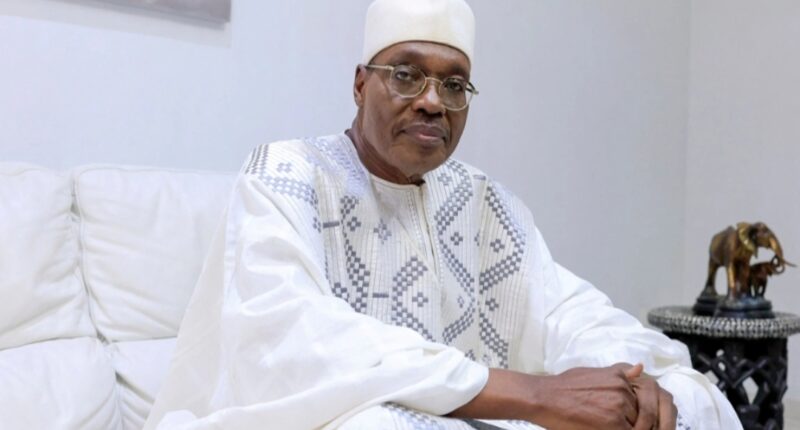Tchiroma’s Bamenda ‘Forgiveness’: A Campaign Stunt or Sincere Reckoning?
By James Agbor, BaretaNews
October 4, 2025
In the bustling heart of Bamenda, a city scarred by years of conflict and resilience, former Cameroonian Minister of Communication Issa Tchiroma Bakary took to the stage today, extending a hand of apology to the very people he once vilified. Addressing a crowd weary from nearly three weeks of lockdown, Tchiroma sought forgiveness for his inflammatory statements during the height of the Anglophone crisis—words that branded peaceful protesters as “terrorists” and dismissed legitimate grievances as fabrications. It was a moment laced with humility, or so it seemed, as he playfully dubbed Ambazonia activist Chris Anu his “friend” and quipped about needing protection in the Northwest Region. Laughter rippled through the audience, a brief respite in a narrative long dominated by pain.
Yet, as Ambazonians pause to reflect on this gesture amid the fragile calm before Monday’s return to Lockdow until October 14th—the question lingers: Is Tchiroma’s contrition a genuine pivot toward accountability, or merely the latest chapter in a lifetime of political chameleonism? With Cameroon’s presidential election looming on October 12, 2025, where Tchiroma has positioned himself as the “consensus opposition candidate” against the octogenarian incumbent Paul Biya, the timing feels suspiciously convenient.
Tchiroma’s history is a litany of betrayals and belligerence that demands scrutiny. A railway engineer turned stalwart of the ruling RDPC party, he confessed earlier this year to sabotaging the opposition in 1992, undermining early democratic hopes just as multiparty politics flickered to life in Cameroon. As Minister of Communication for over a decade, he became the government’s chief propagandist, routinely denying the existence of an “Anglophone crisis” and rejecting any notion of dialogue with those seeking federalism or independence for Southern Cameroons—now known as Ambazonia. In 2018, amid mounting violence, he declared it “not possible to sit around the table with groups who would like to take the nation and cleave the nation,” a stance that echoed Yaoundé’s iron-fisted approach and fueled the militarization of the crisis.
His rhetoric often veered into the derogatory, labeling Anglophone advocates as enemies of the state and downplaying atrocities committed by security forces—acts now acknowledged even by human rights watchdogs as systematic abuses. Just months ago, in July 2025, Tchiroma faced his own taste of karma when barred from international travel, a move that spotlighted the regime’s internal fractures even as he plotted his presidential bid. Now, with crowds in Yaoundé and beyond swelling at his rallies—drawing up to 10,000 supporters in recent stops—he’s recast himself as a peacemaker, admitting military excesses and calling for dialogue. But for many in Ambazonia, these admissions ring hollow without concrete restitution or a clear break from the Biya machine that once elevated him.
Mark Bareta, the diaspora voice whose updates have long chronicled the struggle, captured the bittersweet essence of the day. “On a human level, it was heartwarming,” Bareta wrote, celebrating the laughter that pierced the tension. “Our people deserve this moment of laughs and fun.” Yet, in the same breath, he underscored the unyielding reality: the fight for Ambazonia’s self-determination endures, undimmed by one man’s epiphany.
Tchiroma’s Bamenda visit, fresh on the heels of his campaign’s feverish pitch—”I am the one capable of leading Cameroonians successfully in this unprecedented fight,” he boasted in a recent interview—raises eyebrows about motives. Is this outreach a blueprint for peace, as some optimists hail, or a calculated bid to peel away Anglophone votes from genuine separatist sentiments? The opposition’s fractures, deepened by his self-anointed “consensus” status, suggest the latter: a power play dressed in remorse.
As the election dust settles in just over a week, Ambazonians must weigh Tchiroma’s words against his deeds. Forgiveness, if offered, should not be a bargaining chip but a foundation for justice. True reconciliation demands more than apologies and jests—it calls for dismantling the structures of oppression that Tchiroma helped build.
God bless Ambazonia.





